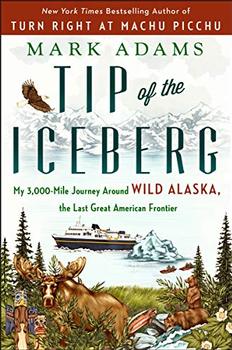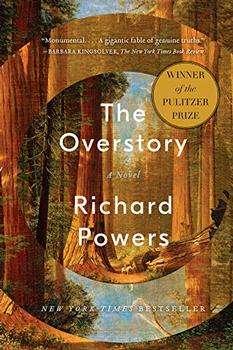Summary | Excerpt | Reviews | Beyond the book | Read-Alikes | Genres & Themes | Author Bio

John Jacob Astor and Thomas Jefferson's Lost Pacific Empire: A Story of Wealth, Ambition, and Survival
by Peter StarkIn 1784, twenty-one-year-old John Jacob Astor left his home in Walldorf, Germany and came to the fledgling United States to make his fortune in an unknown land. He quickly became aware of the vast sums to be made trading animal furs and established a company based on that knowledge, bartering with Native Americans and trappers. As a result, by the turn of the century, he became one of the most influential and affluent men in the United States. A canny businessman, Astor was conscious of the massive untapped potential of the west coast, and developed a plan with the support of President Thomas Jefferson to stake a claim to the area's wealth: He would send two parties, one via sea and the other over land, to the mouth of the Columbia River (in what is now Oregon - see 'Beyond the Book') to set up a large fur trading post, with the overland party also establishing a series of posts along the route. This would form the basis of an enormous – and fantastically profitable – trade triangle, with furs from the Pacific Northwest shipped to China to be traded for tea. That tea would then be sent to England to be swapped for manufactured goods which would in turn be sent to the United States. The money raised by the dry goods sales would be funneled back into the trapping and fur export business, and so the cycle would continue, making money at every step of the way. The stories of the two Astor-sponsored expeditions are at the heart of Peter Stark's Astoria.
Many readers avoid non-fiction because they feel it's too dry, too devoid of action; until recently I was one of them and so I do understand this reaction. I would wager that Astoria will go a long way toward changing many minds about the genre; the account reads a great action-adventure novel. Stark's ability to vividly convey the rigors of ocean travel left me breathless at times, rapidly turning pages in astonishment as sailors were ordered to perform unbelievable actions in the name of discovery. So, too, is the author convincingly able to describe the difficulties of traveling by horse and by foot over unknown lands, across and down raging rivers, and through snow-covered mountain passes. The account is absolutely riveting from start to finish, and Stark makes a perfect story-teller.
In addition to being a compelling writer, the author is also very adept at helping his audience put the time period about which he's writing in context. He makes note, for instance, of the difficulties of 19th-century ship travel:
Nothing in our daily world remotely compares to this extreme confinement, except perhaps space travel or a winter in Antarctica. Imagine an airline flight of five months with one brief stop, no movies, porridge for breakfast, salt pork for dinner, and a bottle and a half of fresh water per day. The cultural clashes between factions – American sailors, Scottish fur traders, French-Canadian voyageurs, and naval heroes – exacerbated the pressures of extreme confinement, a phenomenon noted by modern psychological studies of crews that winter in Antarctica stations.
He frequently references events taking place in other parts of the nation and world as a way for readers to connect to what he's portraying. Stark supplements what is known and well-documented with his own speculations, clearly marking these sections as such. For example, the overland party included a pregnant Native American and her two children, the family of the group's interpreter Pierre Dorion (half-Sioux son of Old Dorion, interpreter for Lewis and Clark). Through his research the author was able to determine that this woman, Marie Dorion, would very likely have crossed paths with Sacajawea, who'd returned from the Lewis and Clark expedition just four years before the Astorian expedition left New York in 1810. "What would Sacagawea have told Marie Dorion?" he writes. "One imagines her saying to Marie Dorion, Don't go...Or...Yes, join them, because they will come to our homelands whether we join them or not...Or...Go. You will see amazing things." The author's thoughts about conversations and emotions that could have occurred add a level of interest to Astoria, as do the maps and pictures embedded throughout. Also helpful is a section at the beginning that contains a brief description of many of the adventure's participants (several of whom were Scottish and had similar names; I did find myself occasionally referring to this list for clarification).
I can't think of a single negative point about Astoria. Granted, I read primarily fiction and so perhaps a scholar or non-fiction aficionado would find aspects of the book that are less than perfect, but I found it exceptionally well-written and entertaining.
One of the many interesting points Stark makes is that this remarkable story is largely unknown today. It was certainly well-documented; eight of the parties involved kept detailed journals or wrote memoirs, and Astor's friend Washington Irving published an account in 1836 which became a bestseller in its day. The author speculates that people adore winners, and for the most part the expedition ended in failure; consequently this fascinating endeavor passed out of the public memory. Stark does readers a very large service in reminding us about this extraordinary and important piece of North American history. I can't recommend Astoria highly enough for anyone interested in the colonization of the American West.
![]() This review was originally published in The BookBrowse Review in April 2014, and has been updated for the
February 2015 edition.
Click here to go to this issue.
This review was originally published in The BookBrowse Review in April 2014, and has been updated for the
February 2015 edition.
Click here to go to this issue.

If you liked Astoria, try these:

by Mark Adams
Published 2019
From the acclaimed, bestselling author of Turn Right at Machu Picchu, a fascinating and funny journey into Alaska, America's last frontier, retracing the historic 1899 Harriman Expedition.

by Richard Powers
Published 2019
"The best novel ever written about trees, and really just one of the best novels, period."
—Ann Patchett
A classic is a book that has never finished saying what it has to say
Click Here to find out who said this, as well as discovering other famous literary quotes!
Your guide toexceptional books
BookBrowse seeks out and recommends the best in contemporary fiction and nonfiction—books that not only engage and entertain but also deepen our understanding of ourselves and the world around us.